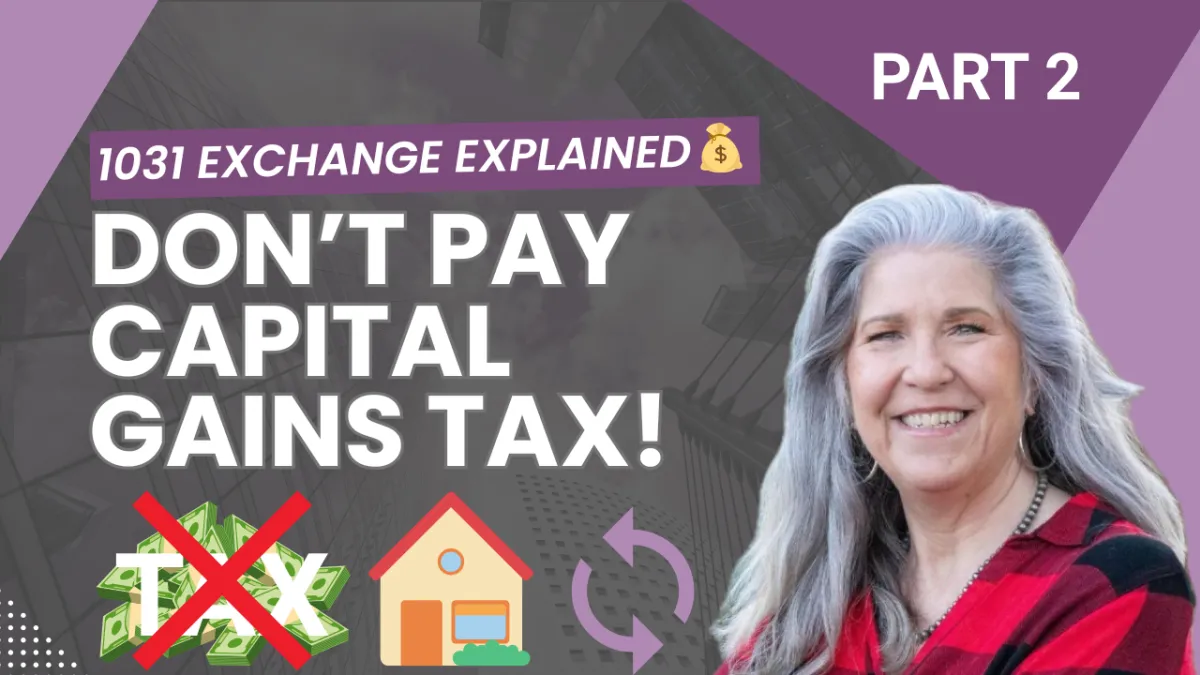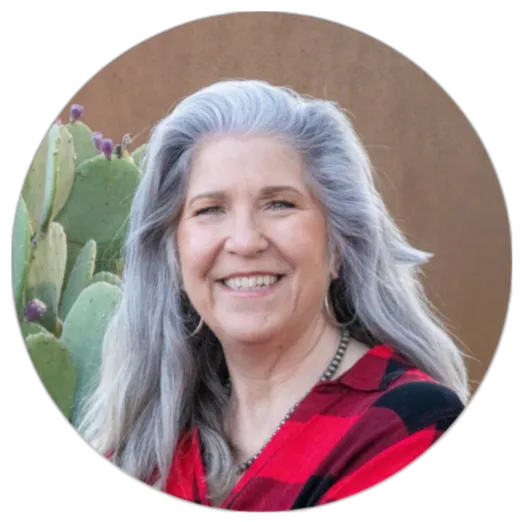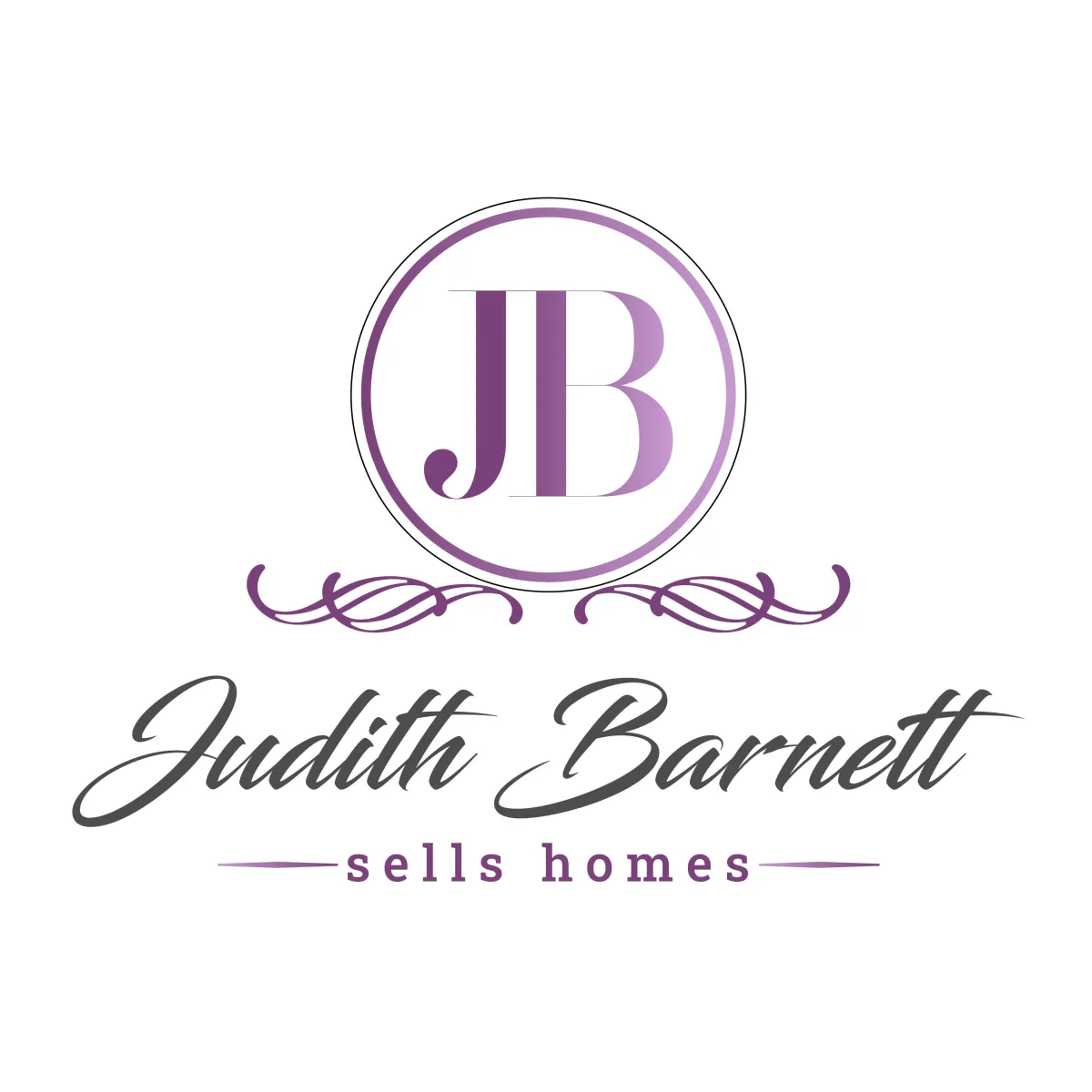
Unlock Real Estate Wealth: Master the 1031 Exchange Game! Part 2
👉 Watch the full video on YouTube!
Link:
Prefer to listen? Click to hear this post!
Qualified Use
Rick Wittstock:
Now this is the part that people don't understand is like raw land. Well, I don't make any money on raw land, so why do I need to do a 1031 exchange? It doesn't qualify. Raw land doesn't make money sometimes, right? I had a client a little bit ago out of Texas, I'm doing exchange for him. He's selling, a multifamily there and he wants to buy multifamily in Phoenix.
Actually he wants to buy a warehouse in Phoenix. So he sold what I'm doing exchange on. I'm talking with the guy and he is like, oh yeah, I just sold a property last year in, in Texas. It was a piece of land. I couldn't do a 1031 exchange on it. So I took the money and I bought a warehouse in Phoenix with the money.
And I go, , you're gonna not like what I'm gonna say next. Did you know you done a 1031 exchange on that raw land and to buy the property in Phoenix? He goes, what? I, he paid like a hundred grand in capital gains tax on that thing. And guess who the first person he's gonna call after broker. So even though again, it's not you, they like to blame you guys.
So HealthForce, this is how reads in the tax code and investment property or property help or productive use in trade or business. So that's why the raw land counts as investment. Other properties, like single family commercial has to be productive. Yep. So then with that in mind, can you then buy a raw land?
Would you intend to? Yeah, absolutely. Yep, you can. Alright, so these are the ones that are not qualified primary residence. So the biggest thing that the IRS looks for is your taxpayer's intent. So we're talking about how long you have to hold the property. So whatever your intent is, is what kind of spears it.
So if you sold a 1031 or did a investment property, do 1031 exchange, it has to be an investment property on the replacement side. But stuff happens. So as long as your intent wasn't to go move into it right away and your actions are that you're gonna do it as maybe an Airbnb, but then they HOA two months later says, no more Airbnb's.
Well, your intentions were good. You were buying an investment property for that purpose. Now if you went off and did a 1031 exchange sold investment property and moved into it right away, pretty easy for the IRS to prove that your intentions were not to keep it as an investment property. So that's kind of like there's a lot of loosey goofies when it comes to the tax code, and a lot of those decisions are made by who?
The tax advisor. Your tax advisor is the ultimate person that says nay or yay. You can do that. Not based on what your intent and actions are. So your intent on the raw end was to hold it. Mm-hmm. But yet your real intent was to build on it three years later. And that's okay, because that's three years later.
The buy and hold period. What's the limit? Two years. Two years. If you're gonna convert it one year, if you just hold it. So we'll get into the converting side in a second. But yeah, as long as you lease, hold it for one taxation period and claim it as an investment property. And then next year you move into it, things happen.
Your intent was that you were doing it as investment property, like the Airbnb didn't work out. Now you can move into the property. So what if that happens before that year for the, then it's gonna be up to discretion of the tax advisor. I'll tell you a little story here on this one. 'cause, 'cause we're getting a lot of great questions.
I had a client, two brothers outta California sold. Like it was a $2 million property, but it was prob, I saw pictures of it. It was not that nice. It was an Oceanside, California, not a bad area. They sold this 2 million property that was an Airbnb, the best property for them. They sold it and they bought a property in Fountain Hills, Arizona, you know, where Fountain Hills is?
Nice homes there. Kind of a little bit retiree age. They bought an existing Airbnb with the money. This is like a year or so ago, and they bought it, basically walking through it one time. But the numbers were good. So they said, okay, we'll we'll buy. And so they bought it in exchange. They go into it a month later, and they wanted to review the property again.
Somebody was in the property. This was around January, the height of the season of Airbnbs, and so there was a tenant in it that was Airbnb, and she was a regular. She's been renting it every single year. That has been an Airbnb for those two, three months. They go through and she goes, I didn't know this property was even for sale.
She said, yeah, we bought it, da, da da. How much you bought it for? Oh, we bought for 1.5. I wish I knew it was for sale. I would've bought it. And, and they go, Hmm, no, I know. They just look at the property and she goes, comes, they're looking at the property, whatever. She comes back to like half an hour later where as they are still reviewing the property, she says, would you be interested in an offer?
And they're like, well, maybe $2 million. She offers it. I will buy it from you and close within a month for $2 million. They just buy it for 1.5. And guess what they said? Let me get back here. But who did they call? Tax guy? They called the tax guy. They called me. Everybody's having this conversation back and forth.
Attorney's looking at it, this like this. Their intent was 100% to buy and hold it for a year, and something uncontrollable happened. They got what they call an unsolicited offer, which means that they didn't put it on the MLS. Their intent was to hold it, buy and hold less investment property. Somebody came to them and said, Hey, here's $500,000.
I'm gonna buy what you bought it for. How would you not say that yesterday? So they did the exchange and everybody was okay with it and didn't get challenged.
Making a Vacation and Second Home Qualify for a 1031 Exchange
Get much, and then get that under my belt that I can claim a tax a couple tax years of as a rental. Then I could do a 1031 exchange. So if you have a client that's not using their property very much, because here's the minimum 14 days in two 12 month periods that you have to rent the property, but you can only use it 14 days yourself personally, or 10% of the time that you rent it.
So you're gonna be limited on how much you can use it. So it's more, you may not wanna have it as an Airbnb always, but the year before you gonna sell it or the year before you gonna, or two years before you're gonna sell it. Start implementing something like this. Avoid paying a capital gain expense. Now, what they don't count here is maintenance.
I go to my property on the weekend and I have to clean all the pine needles up, and my friends are out drinking by the, by the fire pit. I put on my little ledger. I'm up here doing maintenance this weekend, and it's a hundred percent okay, and it doesn't count against your 10% time you're using it. But do you need to keep records?
Yes. Because if they do what the gives with an A audit, you're in trouble. Right. And the first thing, have you ever been audited before? The first thing is they wanna see proof that if you're claiming is true. So if you lost all your gas receipts and all your entertainment receipts, they don't care.
They want you to call that credit card company and get them. If you don't have 'em, you're gonna have to pay tax on it. Or they're gonna amend your tax return. That's the burden is on you when it comes to an audit and hopefully you never get it. Alright, so another exit strategy is the dream home.
Gonna do this one back your second break and then we're gonna wrap up. So this is called and actually rules on from the IRS. This is a way to convert your investment properties into primary residence. So here we go. Four rental properties. They do a 1031 exchange into their dream home. Minimum, they have to rent it for that 14 days a year.
And then on the third year, 'cause where were they living for those two years? They were living in their primary residence. But before you move into the new property, or as you're moving into new property, you put your primary residence on the market and you sell it under the 121 tax code, which is you get that two 50 500,000 tax free.
You sell it, use that money to fix up the dream home, kick out those tenants. Update it, pay off any mortgages. You move into it on year three. After two out of five, that new property becomes your primary residence. So you skip the tax, well sort, you're falling into a different tax code because now the primary residence code is gonna exist after two outta the five.
There's a little bit of pro rating stuff that goes on there too, depending on how long you have the rentals versus how long you own the primary. But all said and done, the longer you hold it as your primary residence, the less you have to pay in capital gains tax. But all that's all that moving up. Yeah.
In a way sort. Yeah. You're buying the same or two years, right? Yeah. It's a way to convert your investments without dying and you're now able to, offset some of that capital gains tax and reset it into a different category under their tax code, which is that primary residence, the 121 guy. Nobody knows him. Any questions?
Qualify Intermediary
Yeah, what that mean? Our industry is not regulated. Yours is every title is Everybody that handles money has to have a license and regulator. Other than us and we hold like four or $500 million of exchangers money every month and we're not ready. How do we know you're not going bankrupt? Ah, how do you know?
I knew you. Can I borrow this for you? Of course. Physical thing I handed out to you? Yes, on the back. All these nice little guarantees. We're a part of a Fortune 300 company, so we can over insure each exchange. A hundred million fidelity bond, 50 million written performance. 30 million E and O, e and o insurance on each exchange.
And have we ever had to use it? Not since 1980, but it's there just in case. You know, that bank that crashed last year, Silicon Valley, you know how many exchangers had money in that bank? A lot. Luckily the government bailed them out because they would had a bunch of exchangers that would've had to pay tax on money they didn't have.
So remember I said that it's very important to work with a company like us and lawyers' title 'cause we have a big company that's behind us, fortune 300 company. These insurances are expensive and maintain, so we're able to offer that with every exchange. Not every smaller company will do that. Yep. Are you affiliated or working with Judiciaries?
No, we don't have to run, required to, but again, our parent company is so through that we are. Yeah. So who can handle your exchange? Well, exchanger is disqualified obvious, right apart, anybody related to, an exchanger, an agent. So this is like, well, how come I can't get title to do my exchange?
Because if you have a two year working relationship with any of these people, they cannot be your exchange coordinator or exchange QI. So anybody you don't trust. Other than given the guarantees on paper, cannot, cannot do your exchange. Anybody have a relationship but everyone else qualifies. Even this gentleman, Rick, member Gie they love your money.
So that leads me to a couple little scary stories here. This one is one out of, uh, Nevada. It's a decent repub, exchange company outta South Nevada. And. They like, we make a thousand dollars per exchange, right? That's not a lot. So we gotta do a lot of volume to make the money. Some smaller companies, they may do 20, 30, it's a little harder for them to survive, so sometimes they try to do stuff like this.
They took $98 million of exchangers money to invest into a medical device company to go public. To this day, it has not gone public. So $98 million, they lost. And so the exchangers had failed exchanges on money that they didn't receive. They sued them and only got 90% of that money back. So you might get an exchange for maybe $700, maybe $800 or $900 for a few hundred dollars more.
You pay a thousand with us. Your funds are gonna be there and guaranteed. The other one is that there's some smaller and there's some, there's a guy outta Florida, really respectable in our industry. An attorney at the 1031 exchanges, and he was a one man show. He had an office, but it's one of those executive offices where you share the receptionist and all that stuff.
He was driving along the highway in south of South Florida and got an major car wreck, ended up going in a coma. He had about 20 different exchanges ongoing, and he went into a coma. Every one of those exchanges, their timeline came up. It's like, oh, I found a property. Can I have the money? Can I have the money?
Can I have the money? He was in a coma. Nobody could reach him, of course, right? He called the office. The executive, office was not even really his receptionist. Okay. So she just stopped answering the calls. Oh, and all those exchanges failed. He wakes up six to eight months later to multiple lawsuits.
Not his fault, but they went with him. He's a very knowledgeable guy. They went with him 'cause of that, but he didn't have a team. I have a team, so if something happens to me or something happens to Adrian or something happens to one of my coordinators, you're gonna be covered. You're gonna have exchange.
Just keep going. But in that situation, one person, one show, and he didn't even have a, an assistant that he trained. If he did that, at least he would've been able to save his exchanges. So just keep that in mind. Ever watch that TV show, American Greed? It's still on, but do you have to watch it on YouTube?
This guy's named Edward Comb. He went off and bought a couple exchange companies on the East Coast. He's like, this is the best business ever. All I have to do is hold people's money. And then they find a new property. I give it to them. Then, so his business plan, I don't know what it was, but people would do an exchange.
They'd give him a million dollars, they'd go find the replacement property six months later or two months later, and then, he would use the money to go party. Oh, he would go to Vegas. If you watch the episode, he went to Vegas. He, bought, he got, he bought a couple super cars, just blew the money. No endgame.
But that was okay. 'cause Peter kept paying Paul. Right. But then the market. Collapsed in 2009. In 2009, there's probably company or countrywide. There's probably only 10 exchanges for the whole year. So he wasn't getting any more money. Paul was broke. Paul was not paying Peter anymore. So he got caught and he was doing a hundred years behind bars.
I scared him a little bit. Alright, so here's what you wanna look for in a 1031 exchange. And this is just what I told you on the back of that brochure. Make sure they have good performance guarantees, make sure they have good bonds.
Identification Rule
But this is the rule, and I told you a three property rule, that's the most common one in residential, that you're no fair market value. You just have to have three properties that you identified within F 45 days. This one confuses the heck of it's the 200% rule. It doesn't mean you're limited to this.
This just means how much you can identify. It's two times the gross sales price. So if you're gonna buy multiple properties, the 200% rule might be the better one to go with. And so if you had a $5 million property, now you can identify as many as you want, up to $10 million. So first one, you're limited to units.
Second one, you're limit to a dollar. Who helps you decide this? A good QI will help you decide which is the best way to go. 'cause there is one exception too. I had a client that wanted to buy five properties. And they were way over two times his gross sales price. So what did he do? He bought all five with the one exception.
So you, as long as you're gonna buy everything you identify, it's still okay too. So we can help your clients in that situation, which is the best way to identify. So don't get too caught up in that side. Any questions on that? Yeah. All right, so this is just some of the marketing stuff on Go. Oh, going too fast.
I wanna cover this and then we'll get to the end. Look at that. That's my, alright, there we go. So this is the process for 1031 Exchange. All right, number one is that you find a client to buy your investment property. Of course, get it under contract, put it in escrow at lawyer's title, and then call your QI to set up the exchange.
Okay, don't wait till 11th hour. During crazy times, like a couple years ago, we were charging extra. If they called us at the last minute, we can still put an exchange together. Even at the signing table. So if you didn't do it, you're at the signing table, we can snap one together. But the only problem there is I did this older couple, a few years ago, they were at the signing table.
They're like, so the escrow officer said, oh, you know, you could have done 1031 exchange and not have to pay the capital gains tax. And they're like, not pay the capital gains tax. Great. Sign me up. Oh, and then I get on the phone conference call. I picked them. I had an idea what was going on. I said, you gotta do something.
We wanna change. You have to buy a new property and like kind, it's 1,050 we can set up because this and this, and you don't have to pay the capital gains tax much. You buy a new property. All they heard from me was they didn't have to pay the capital gains tax. So they called me the next morning and said, when can I get my money?
And I go, you're in an exchange. I can't give you your money. You have to go towards the new property. Oh no, no, we don't wanna buy any new properties. We're done. And then I like, then I had to say, well, we have to buy law, hold the money for 45 days and then I can release it to you. You think they were happy?
No, but that's the point. Don't wait till the 11th hour because. The education that I'm giving is fast forward and they didn't hear everything, so then they went into something that didn't really wanna do. So at least can be 10 days before. So we can set it up, but we can set it up if you have to. Last minute.
Think about one thing. We talked about a lot of gray areas here today, but whether they get Al Capone for Thank you,
-End
Judith:
Wasn't that information awesome? I'm telling you Rick is he can't only says, he only tells bad jobs and doesn't tell good stories. His stories, I think were so good at exemplifying what and why a 1031 exchange is important and how it benefits us as real estate people. People who own real estate. Stay tuned for the extended version, the whole, I don't know how long it's gonna be.
We may break it up. The two parts. Like two half hour segments. But I do want you to stay tuned. If you like this, subscribe below. Like it. Please ask questions, and that way you'll be notified when his interview comes up on my YouTube channel. Thank you, and thank you for watching.
💡 Ready to take the next step?
📘 Grab our free guides to help you make a smart purchase:
🎯 Selling your home is a major milestone — and the right guidance can make all the difference.
📘 Grab both of our free guides to help you feel confident, informed, and ready to sell faster and smarter:






